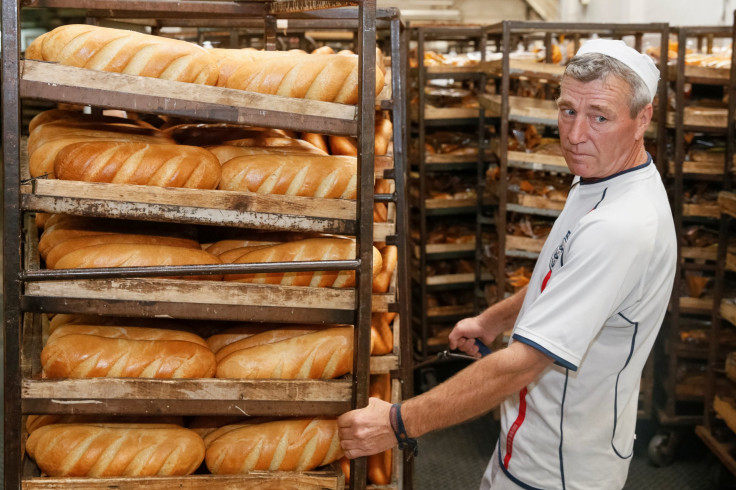Climate Change 2017: Global Warming Linked To Production Of Bread, Study Reveals

The seemingly innocuous loaf of bread you just consumed may be contributing to global warming, according to a new published Wednesday in the science journal Nature Plants.
It has been known for some time that in addition to fossil fuels, food production and consumption significantly contributes to anthropogenic climate change. For instance, it has been estimated that switching to vegetarianism could possibly cut emissions by nearly 63 percent and adopting a vegan diet could reduce emissions by up to 70 percent. However, the new study by researchers from the University of Sheffield calculates the exact environmental impact of a loaf of bread and isolates the associated production process that releases the most greenhouse gases.
“We found in every loaf there is embodied global warming resulting from the fertilizer applied to farmers’ fields to increase their wheat harvest. This arises from the large amount of energy needed to make the fertilizer and from nitrous oxide gas released when it is degraded in the soil,” Liam Goucher, lead author of the study, said in a statement.
The study found the single biggest culprit was the ammonium nitrate fertilizer used in wheat cultivation, which accounts for nearly 43 percent of greenhouse gas emissions released in the production of a loaf of bread. Use of this fertilizer causes the release of nitrous oxide, which is a greenhouse gas that is reportedly 300 times worse than carbon dioxide. The study estimated that 60 percent of global agricultural crops are grown with the use of fertilizers which amounts to more than 100 million tons of fertilizers a year.
In order to reach their conclusions, the researchers analyzed the entire production cycle of bread, which includes growing and harvesting the wheat, milling the grain, producing the flour, baking the bread and finally, packaging the loaf. One loaf of bread weighing 1.8 pounds would have added 0.4 pounds of CO2 from baking, .06 pounds from milling and a whopping 0.56 pounds from the fertilizer used to harvest the wheat.
Although the report notes that cutting down on fertilizers may be helpful, it warns that doing so may cause less food production which can be detrimental in fighting world hunger and malnutrition.
“The findings raise a very important issue – whose responsibility is it to bring about the implementation of these interventions: the fertilizer manufacturer, the farmer, the retailer or the consumer?” study co-author Lenny Koh, director of the Advanced Resource Efficiency Centre at the university, said in the statement.
© Copyright IBTimes 2024. All rights reserved.






















